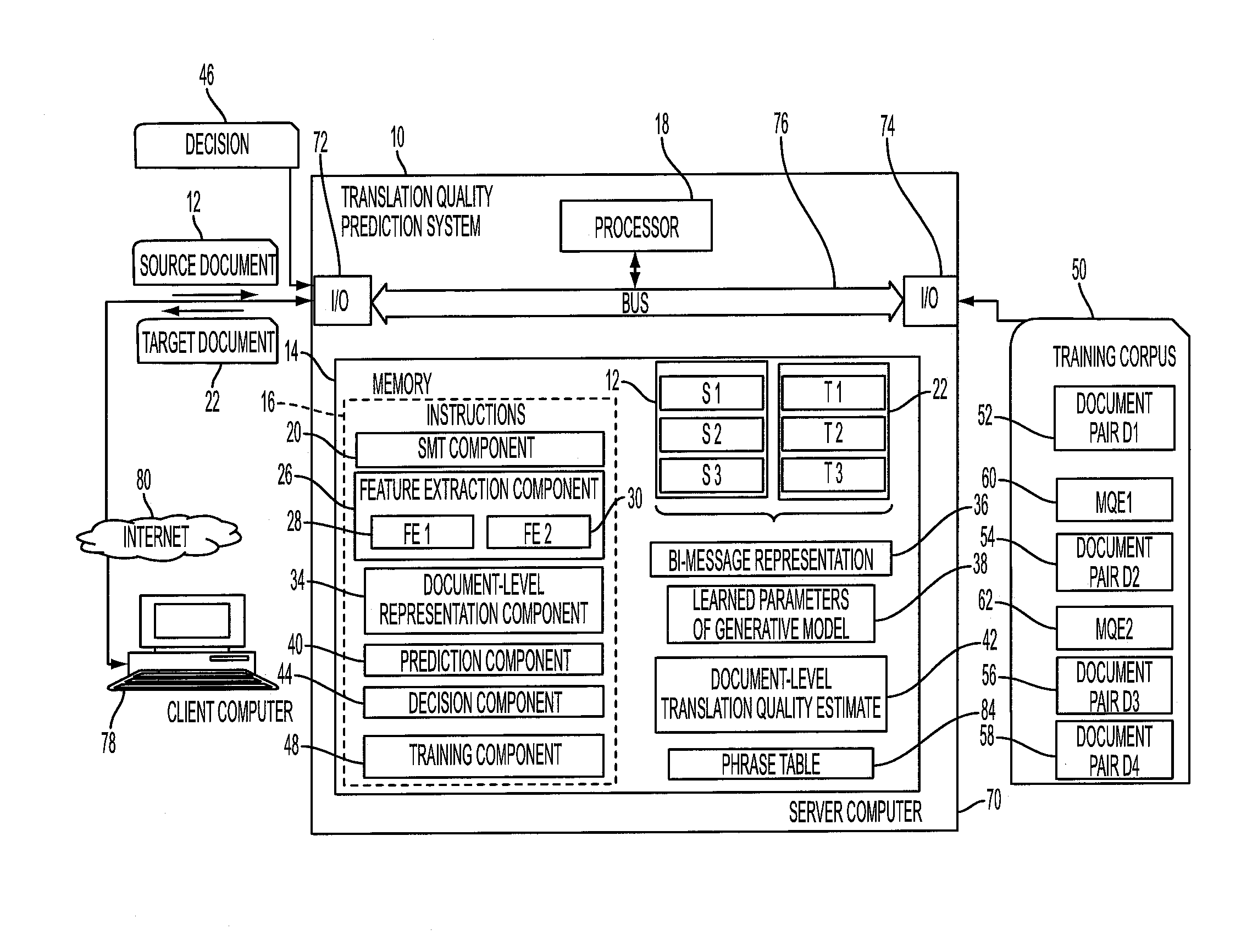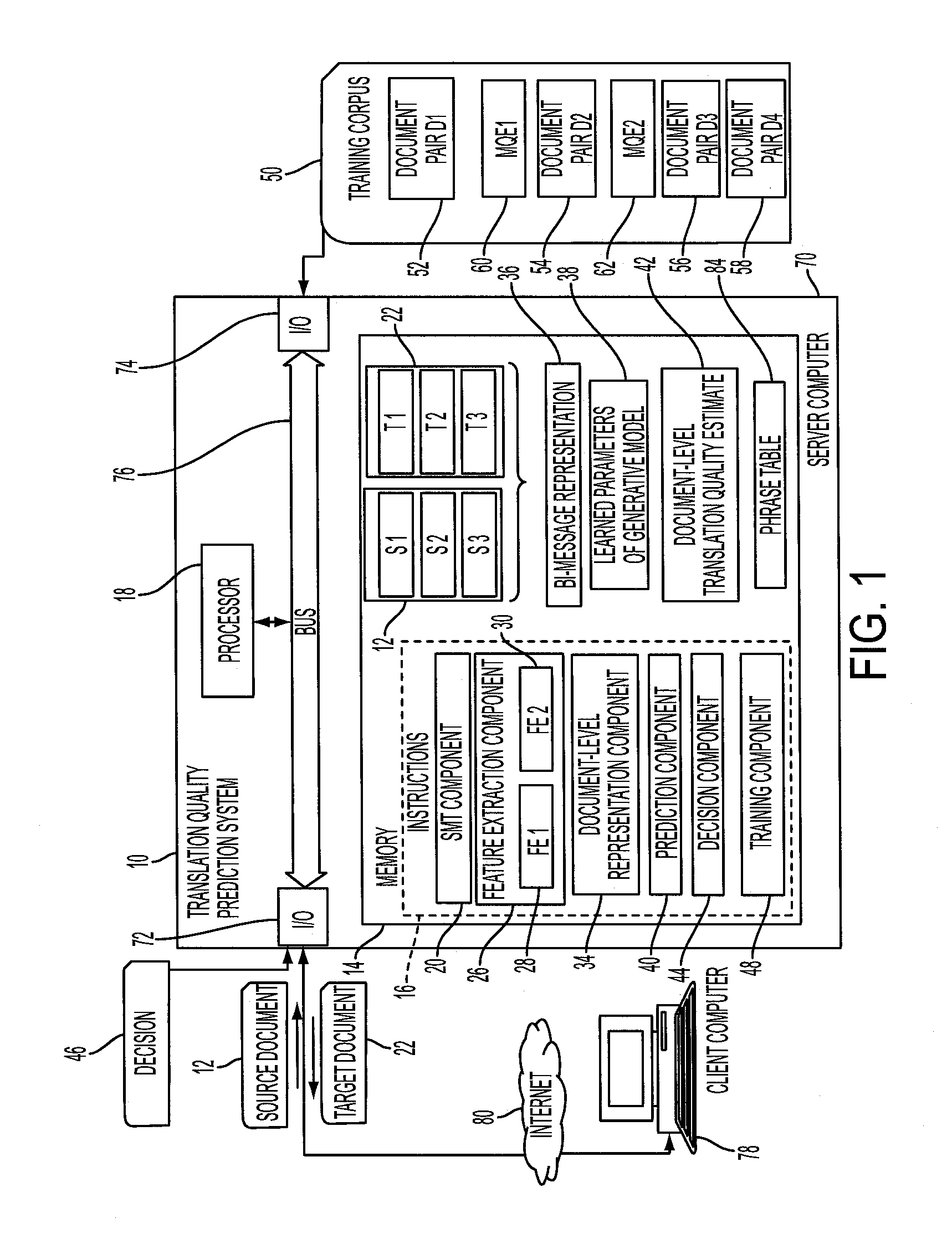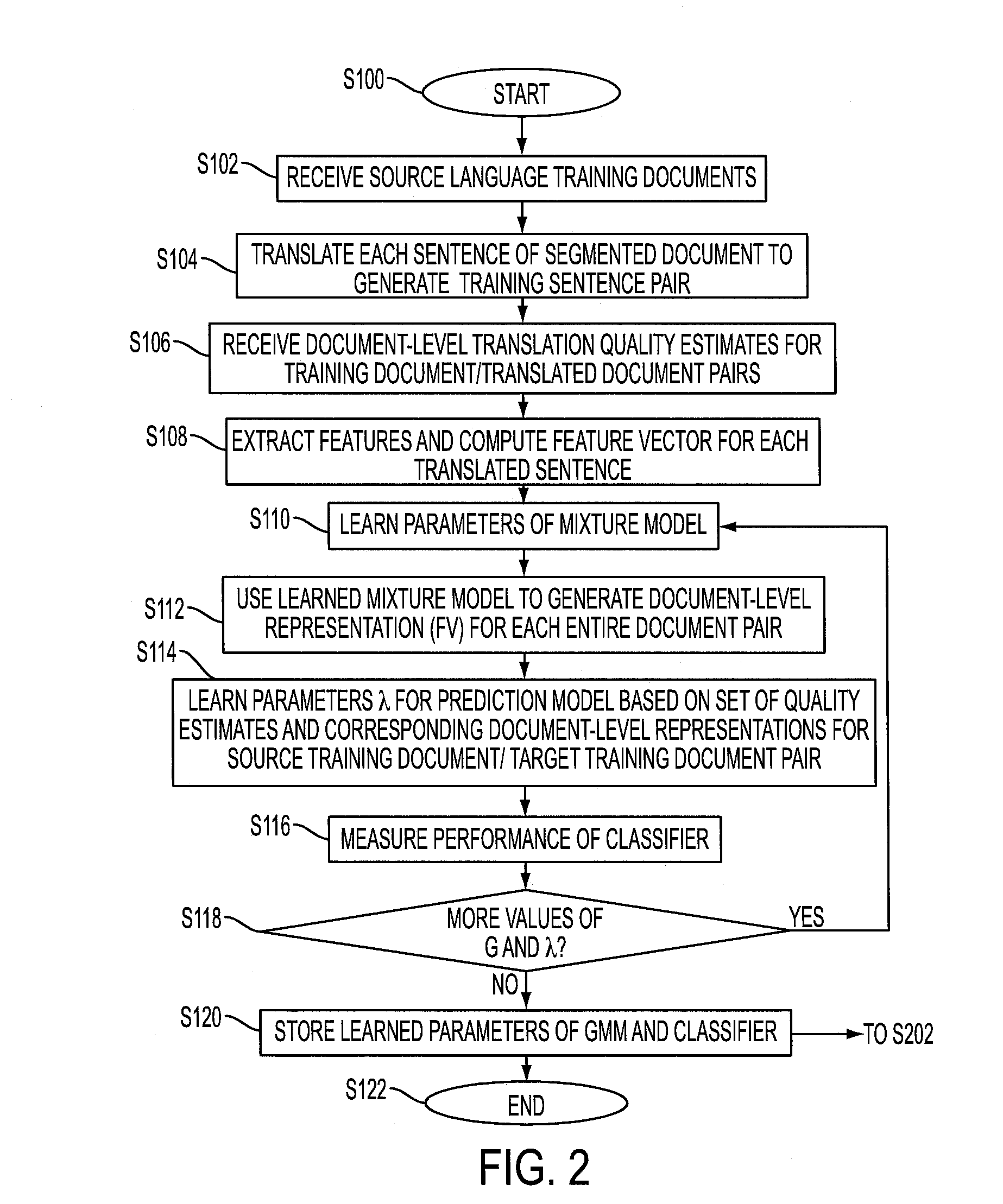Predicting the quality of automatic translation of an entire document
a technology of automatic translation and document quality, applied in the field of machine translation, can solve the problems of difficult to estimate the quality of an entire document, and it is not feasible for the output of machine translation to be post-edited
- Summary
- Abstract
- Description
- Claims
- Application Information
AI Technical Summary
Benefits of technology
Problems solved by technology
Method used
Image
Examples
example
[0094]Experiments were conducted based on human annotation produced by Swedish-English bilingual agents (including Agents denoted 1 and 2). The three agents annotated several datasets as shown in TABLE 1. The annotations were converted to binary values for convenience. Additionally 342 non-annotated Swedish messages were available.
TABLE 1Number of Swedishmessages annotatedAgent 1Agent 2Train152✓Test170✓Test250✓Total No. of annotated172messages
[0095]The metric used to compare the methods is a precision / recall curve, summarized by one numerical value: the average precision (the area under the curve). The plot is obtained by varying the threshold used by the statistical classifier. For a Baseline comparison, the messages of Train1 were also annotated at sentence-level by Agent 1 (179 sentences). This allowed the method described in application Ser. No. 14 / 244,385 to be run and tested on Test1 and Test2 as the baseline. The method in application Ser. No. 14 / 244,385 computes a quality sc...
PUM
 Login to View More
Login to View More Abstract
Description
Claims
Application Information
 Login to View More
Login to View More - R&D
- Intellectual Property
- Life Sciences
- Materials
- Tech Scout
- Unparalleled Data Quality
- Higher Quality Content
- 60% Fewer Hallucinations
Browse by: Latest US Patents, China's latest patents, Technical Efficacy Thesaurus, Application Domain, Technology Topic, Popular Technical Reports.
© 2025 PatSnap. All rights reserved.Legal|Privacy policy|Modern Slavery Act Transparency Statement|Sitemap|About US| Contact US: help@patsnap.com



